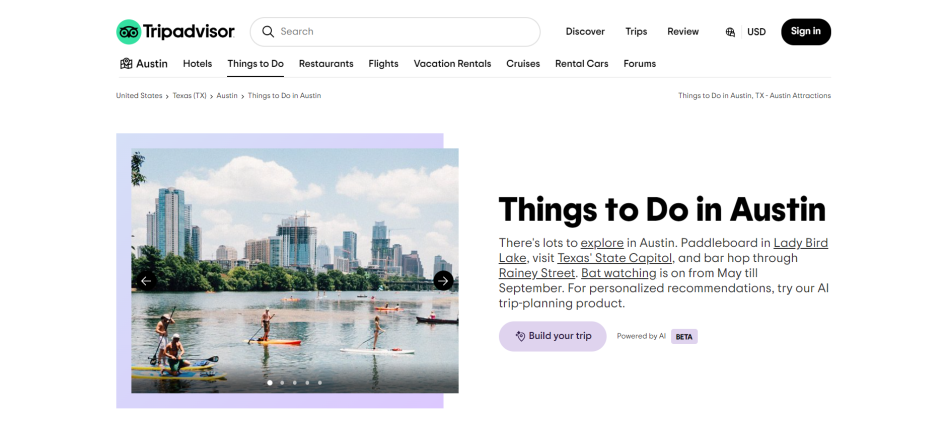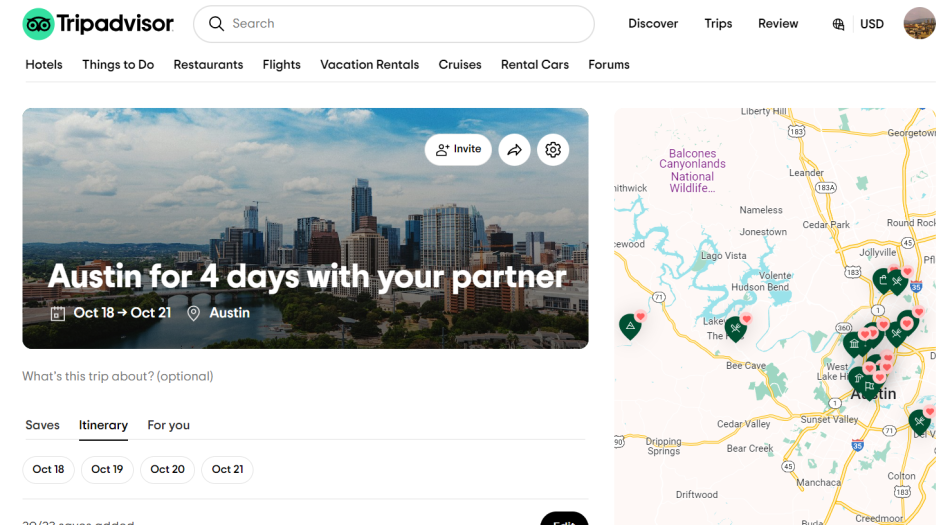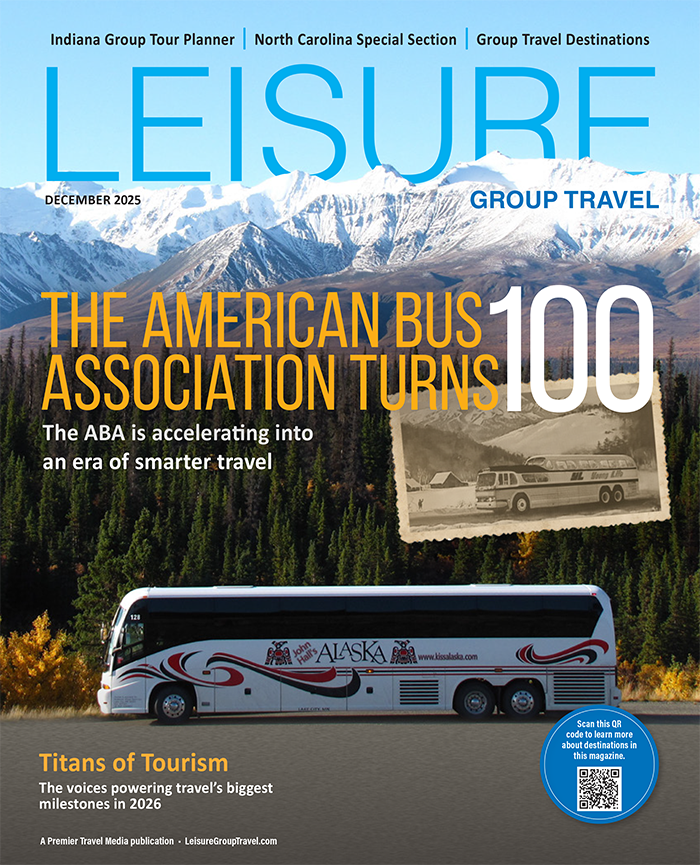Exploring the Cutting-Edge Innovations and Digital Strategies Shaping the Future of Travel at the 2024 Digital Travel Summit in Austin, Texas
Travel is an ever-evolving industry, constantly shaped by the latest trends, technologies and consumer demands. At the 2024 Digital Travel Summit held in Austin, Texas, industry professionals from around the world gathered to explore the new technologies that are set to reshape how travel companies operate and engage with their customers. As the industry emerges from the disruptions of recent years, digital transformation is more crucial than ever. The summit brought together experts from leading brands like TripAdvisor, Tourism Fiji, Priceline and more, who shared insights on how AI, social media, and data analytics are driving innovation in the travel sector.
Stay ahead of the latest travel trends and innovations! Subscribe to Leisure Group Travel Magazine for exclusive insights and updates from industry experts. Don’t miss out—subscribe today and take your travel planning to the next level
AI in the Travel Industry: No Longer Just “Emerging”
While artificial intelligence (AI) has often been referred to as an “emerging” technology in the travel industry, its impact has already started to reshape operations. AI is no longer just a concept; it’s a powerful tool that is becoming integrated into everyday processes across travel platforms. TripAdvisor, for example, has introduced AI-driven systems that can generate personalized travel itineraries for users, taking into account preferences such as budget, travel history, and desired experiences. In an age where consumers expect instant gratification, AI has the potential to dramatically change the travel booking process by offering instant, tailored suggestions.
What’s particularly exciting is AI’s potential to evolve further. Attendees at the Digital Travel Summit speculated on the future capabilities of AI, imagining a world where AI could book entire trips with minimal human input—just a budget, travel dates, and some basic preferences. While we’re not there yet, the technology is advancing rapidly. At the summit, AI was hailed as a tool that could not only simplify the travel planning process but also enhance customer engagement by delivering highly customized and relevant content to travelers.
For many in the industry, the potential for AI is still met with a mixture of excitement and skepticism. However, as Victor Davidson, senior director of Data Strategy & Operations at TripAdvisor, emphasized during his panel, those who invest in AI now will be better positioned to meet future demands. AI isn’t perfect—it still requires substantial human oversight—but it has proven to be a valuable “crutch,” providing critical support to travel teams as they strive to offer better services and experiences.

Data Analytics and AI: A Winning Combination
Another major theme that emerged from the Digital Travel Summit was the role of data analytics in the travel industry. AI isn’t just improving the customer experience; it’s also revolutionizing how companies understand and leverage data to generate more conversions. Victor Davidson shared insights on how TripAdvisor has integrated AI into its Customer Data Platform (CDP) to gain a deeper understanding of user behaviors. By utilizing AI algorithms, TripAdvisor can create detailed profiles of its users, allowing the company to send more targeted and personalized recommendations, ultimately driving higher conversion rates.

Davidson explained that the use of AI in data analytics has allowed TripAdvisor to transform how it interacts with travelers. In the past, customer interactions were largely transactional—bookings, queries, and occasional reviews. But now, with AI-powered data tools, the company can build an ongoing relationship with its users, keeping them engaged even after their trip has ended. This continuous engagement is key to fostering loyalty in a highly competitive industry.
At its core, data-driven strategies help companies deliver a better user experience, which is the ultimate goal of any travel brand. Whether it’s optimizing hotel recommendations, refining flight options, or even suggesting off-the-beaten-path destinations, the marriage of AI and data analytics offers endless possibilities for personalization.

Unlock the latest in travel industry trends and expert tips by subscribing to Leisure Group Travel Magazine. Get insider knowledge delivered straight to your inbox—subscribe now and elevate your travel planning
The Rise of Automation and Its Benefits
AI isn’t the only technology revolutionizing the travel industry. Automation is also playing a significant role in streamlining back-end processes, improving productivity, and enhancing customer service. At the Digital Travel Summit, industry leaders highlighted how automation is freeing up employees to focus on more high-value tasks. For example, online travel agencies and airlines are increasingly relying on chatbots and evolving automated AI-voice programs to handle routine inquiries like booking confirmations, flight status updates, and even cancellations.

Social Media’s Impact on Travel: More Than Just Influencers
Social media’s influence on travel continues to grow, and it was another focal point of the Digital Travel Summit. While influencers could be considered the face of travel marketing on platforms like Instagram and TikTok, social media’s impact goes much deeper than influencer campaigns.
The ability to share experiences in real-time has turned travelers into micro-influencers, generating user-generated content (UGC) that can have just as much impact as professional influencer campaigns. For brands, this presents a huge opportunity to tap into authentic content that resonates with a wider audience. Speakers at the summit noted that encouraging travelers to share their experiences—whether through reviews, photos or videos—can be a highly effective marketing strategy that builds trust and engagement.
Influencers, however, remain a key part of the puzzle. With the growing importance of micro-influencers, travel brands are no longer just looking for high-follower counts. Instead, they’re focusing on influencers who have a more personal connection with their audience. These influencers tend to generate higher engagement and more meaningful interactions, which can lead to better conversion rates for brands. The consensus at the summit was clear: while large-scale influencer campaigns are still effective, authenticity and community engagement are the true drivers of success in today’s social media landscape.
The Road Ahead: Embracing Digital Transformation
As the summit came to a close, one message stood out: digital transformation is no longer optional for travel brands—it’s essential. The 2024 Digital Travel Summit showcased just how much the industry has changed in the last few years and hinted at what’s to come. From AI to automation to social media strategies, travel brands need to stay agile and open to new technologies if they want to thrive in a rapidly evolving landscape.
As we look ahead, it’s clear that those who embrace innovation will be the ones who lead the charge. Whether through the continued integration of AI, the smart use of data analytics, or harnessing the power of social media, travel companies have more tools at their disposal than ever before. By leveraging these tools, they can create more personalized, efficient, and memorable travel experiences—the ultimate goal for any travel brand in 2024 and beyond.
By Tyler Drag
Discover cutting-edge travel strategies and stay informed with Leisure Group Travel Magazine. Be the first to know about industry innovations—subscribe here and start receiving valuable insights today







